Shopnojatra
Sh0pnojatra Community Development project, spanning three years, is designed to empower children in the coastal district of Bagerhat through education, health, and protection. Its objective is to enable all children in the targeted communities to become catalysts for change while enjoying their fundamental rights to education, health, nutrition, and environmental protection. The project operates in four unions: Gourambha and Ujalkur in Rampal Upazila, as well as Chandpai and Mithakhali in Mongla Upazila, all located within the coastal district of Bagerhat.
The primary focus of the project is the safeguarding of children and the environment. To achieve this, children are educated and made aware of their rights, encouraging their active participation in establishing Child Centers where they can voice their opinions on matters directly affecting them. The project envisions the emergence of 90 Children Ambassadors, advocating for change. Another critical aspect of the project involves combating child marriage and child labor. The ‘Shopnojatra’ project places special emphasis on the right to education. To ensure access to quality education, the project has established 10 Child Centers and 4 Education Support Centers, providing safe spaces for children to learn and grow.
The project also actively promotes the overall health and well-being of the targeted communities, seeking to improve the health conditions of both children and the community. Moreover, through these platforms, community members are educated about the climate crisis, climate change adaptation, and disaster risk reduction (DRR), thus helping to build their resilience and protect their environment. The overarching goal of the ‘Shopnojatra’ project aligns with various Sustainable Development Goals (SDGs), including SDG-3, 4, 6, 13, and 15. By focusing on these goals, CODEC and its partners aim to create a lasting and positive impact on the lives of the children and communities involved.
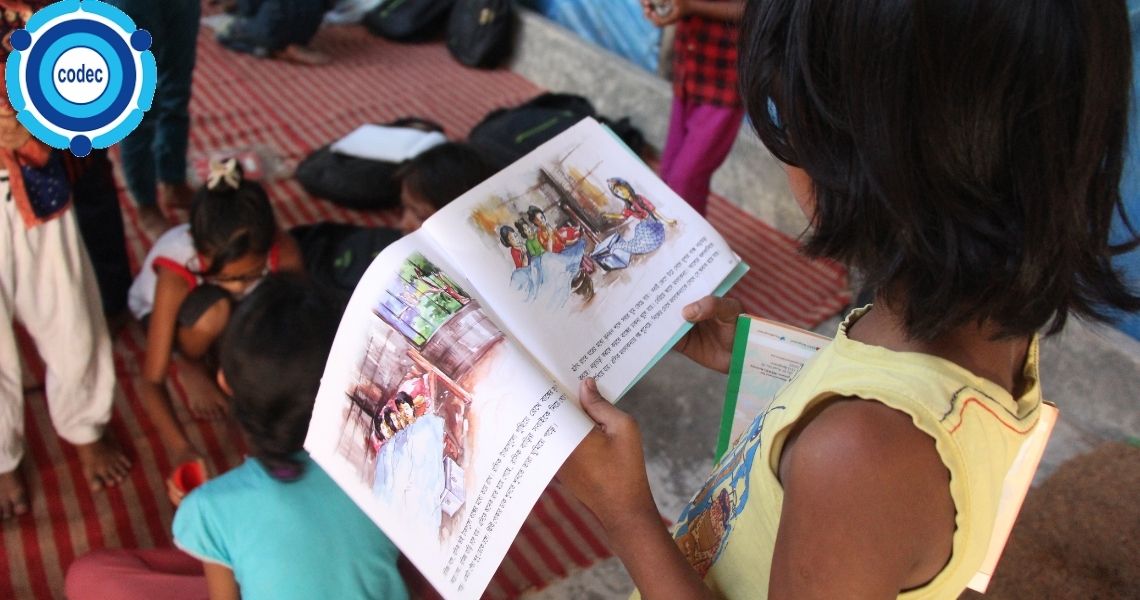
All children in the targeted communities will act as change makers and will enjoy their rights to education, health and protection.
Showpner Thikana
Initiated in July 2022, CODEC’s “Showpner Thikana” project aims to empower students who have dropped out of school and communities residing in coastal areas of Bagerhat and Potuakhali. The primary objective is to improve the quality of education and increase participation rates among vulnerable boys and girls through collaborative endeavors. By adopting a cooperative approach, the project endeavors to address educational challenges and provide comprehensive development opportunities for children, adolescents, and youth in these communities.
The initiative focuses on establishing a conducive learning environment that emphasizes STEAM education, soft skills development, behavioral training, climate action, and extracurricular activities for dropout students in regions prone to disasters. With a special focus on vulnerable boys and girls, the project aims to enhance participation rates, ensure quality education, boost self-esteem, and promote better health outcomes through awareness-raising initiatives.
Through the establishment of “Bridge Schools,” the project extends support and educational opportunities to marginalized individuals beyond traditional schooling. Additionally, it incorporates advocacy and awareness campaigns to empower marginalized communities, advocate for children’s rights, address climate change concerns, and promote disaster risk reduction efforts. The project also facilitates community engagement and sustainable development practices, as well as hygiene promotion activities among vulnerable girls through “Songlap” groups. These groups serve as platforms for raising awareness about rights and empowering girls to become agents of change within their communities.
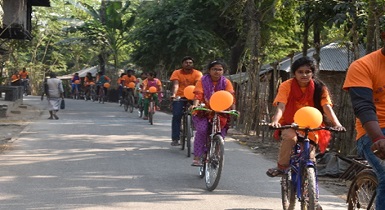
Empowering school dropout students and communities of coastal areas through collective actions for a better future.
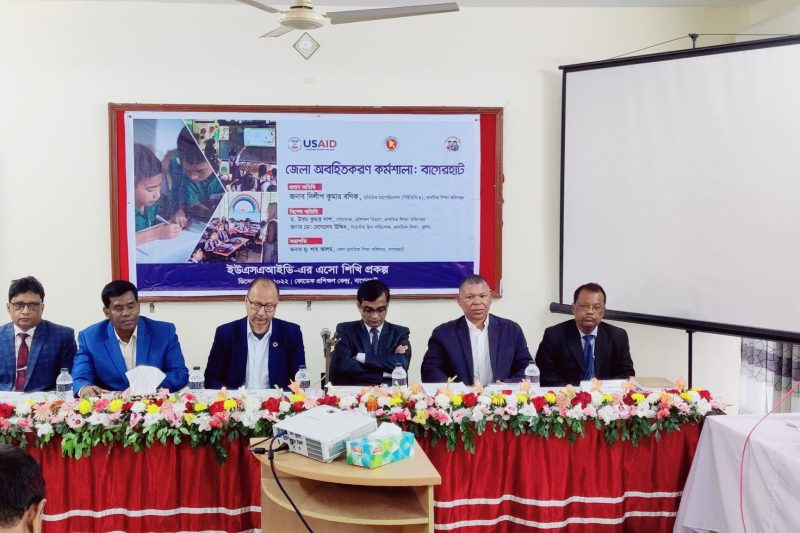
Improve the learning outcomes of Bangladeshi children through supporting the fourth Primary Education Development program (PEDP4).
Esho Shikhi
The Esho Sikhi Project is aligned with the Fourth Primary Education Development Program (PEDP-4) in partnership with the Directorate of Primary Education, receiving technical assistance from USAID Bangladesh. Implemented by Winrock International, CODEC’s goal is to enhance the capabilities of government primary school teachers. The project is designed to improve learning outcomes for marginalized children, emphasizing increased access to education, enhanced quality, and strengthened local capacity, particularly in times of disaster.
A key focus is on providing training for Bengali language instructors to enhance teachers’ proficiency in teaching Bengali language to primary school students. The initiative is closely integrated with the national education framework, engaging various government agencies at the national, district, and upazila levels. Through collaborative efforts, the project aims to address educational challenges and uplift the quality of primary education, ultimately contributing to the holistic development of children in Bangladesh.
Educate the Most Disadvantaged Children (EMDC)
Community Development Center (CODEC) has set up 400 catch-up learning centers (LCs) in Mymensingh as part of the “Educate the Most Disadvantaged Children (EMDC)” Program, which is funded by the Foreign, Commonwealth and Development Office (FCDO) and supported by UNICEF Bangladesh. These LCs serve the purpose of aiding children who are either out of school or at risk of dropping out due to the impact of the COVID-19 pandemic.
In collaboration with local communities, representatives from local government institutions (LGIs), Upazila Education Officers, and directors of corresponding Government Primary Schools, CODEC is responsible for overseeing the management of these learning centers.
The primary objective of the project is to offer educational opportunities to the most marginalized children, along with providing social, health, and personal development benefits. These LCs, numbering 400 in total, are either constructed by community members or established through low-cost rental arrangements. They operate daily, offering two shifts in the morning and afternoon to accommodate the educational needs of children from disadvantaged backgrounds.
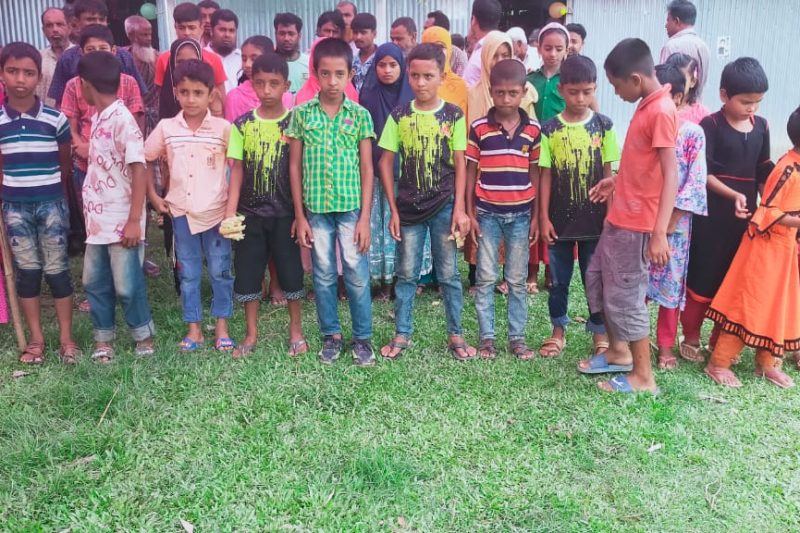
: Service delivery to address the most pressing needs of marginalized children, and to provide improved access to education services for out-of-school children
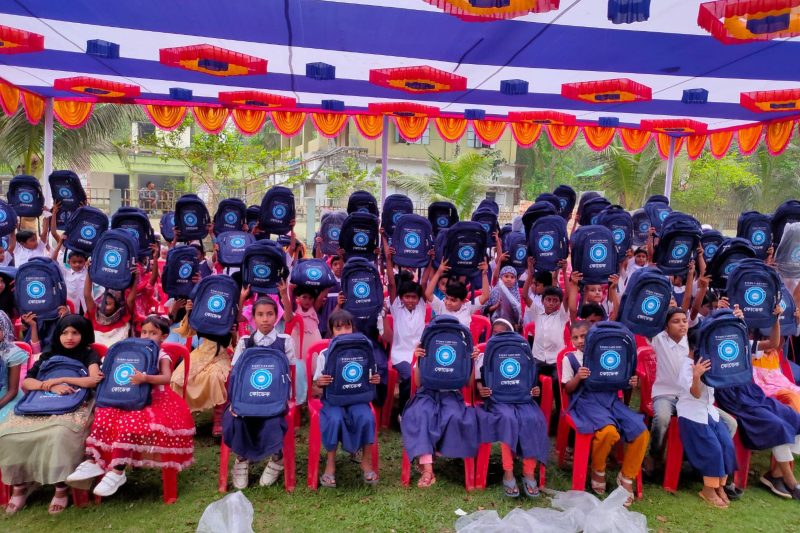
Improve education for traditional fisherfolk in Jaladas village, Sitakundu, through community schools and engagement initiatives.
CODEC-PSN Project
CODEC-PSN project commenced in 2011 to improve the lives of traditional fisherfolk community from Jaladas village in Uttar Salimpur, Sitakundu, through education. Most of the inhabitants of this community are engaged in fishing adjacent to Bay-of-Bengal for their livelihood purposes. It has been a core area for CODEC’s development interventions since 1985 and over time this educational support extended to children from other communities through CODEC’s CSR initiatives. A community school was established following the national curriculum where National days and cultural events are celebrated to enrich the educational experience via student engagement and participation in different competitions. The School Management Committee ensures the smooth functioning of the school with collaborative efforts from local authorities and the Upazila Education Officer, providing essential and need-based support, and consistently receiving appreciation from local stakeholders for CODEC’s activities.
